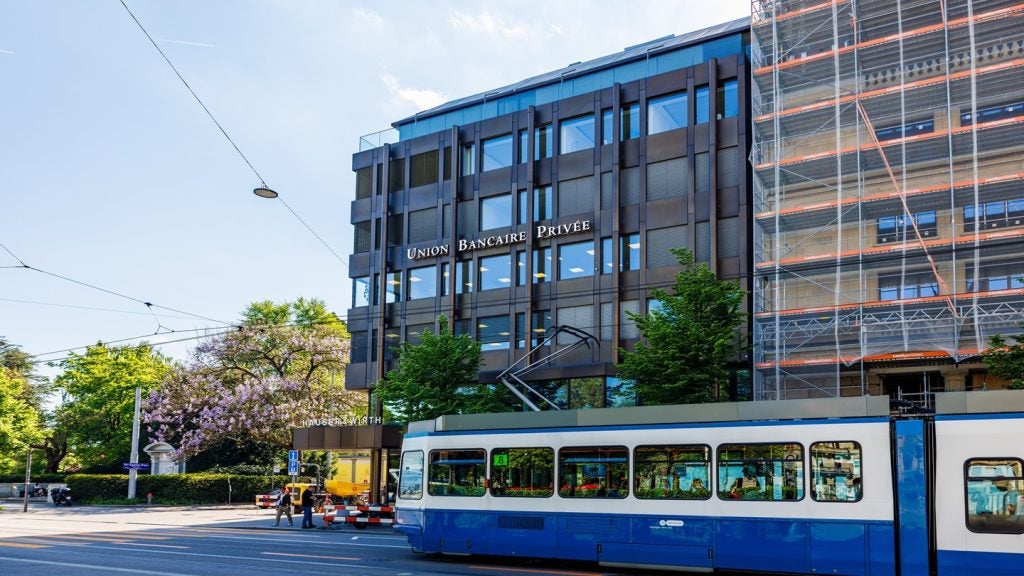
Golden visas; immigrant investor programmes or citizenship via investment, have evolved from merely being a means to travel freely to a more holistic means to gain a Plan B or diversify a global investment portfolio. Does this give investors the flexibility and freedom that they truly desire? Alison Ebbage writes
Acquiring an alternative residence permit, or citizenship, gives more travel freedom and flexibility for the holder and their dependents, plus residence options. The schemes are also an effective insurance policy for the next generation should they need to resettle in another country at some point down the line.
Such schemes can also serve as a means to unlock novel risk management and investment optimisation and diversification options for the high-net-worth portfolio as the investor is subject to different regulatory regimes in different countries.
Paddy Blewer, director, Henley & Partners UK, describes to PBI the changing motivations of applicants to these schemes: “The industry started with the desire of individuals from areas where a visa was required to travel wanting to be able to travel freely and have that extended to their families. These individuals were from countries where the geopolitical situation had not caught up with the wealth being created.
“At the same time countries requiring visas would rarely grant them to entire families due to immigration policies. So there was a lot of newly wealthy people who wanted the same travel freedoms as those in more developed countries.”
And Ceri Pratley, head of residency and citizenship services at Sovereign Group comments: “It is easy to forget that some passports and home countries do not have the same freedoms and that people view these schemes as a necessity to be able to operate a business or to be able to safeguard their family’s future.
“A good example is Indian, Bangladeshi or Syrian families that are resident in the UAE but the residence depends on the breadwinner – the family would be sent ‘home’ if anything happened to the breadwinner and so it is natural to want to have a plan B.”
Broadly speaking there are two types of scheme; investor and citizenship.
Investor schemes trade investment for a residence visa plus sometimes the right to work in that country. Some schemes also offer the right to apply for citizenship that country after a given time.
Citizenship schemes, meanwhile, give the applicant and their family passport and gain the same rights as the citizens of that country.
Dr. Kristin Surak, assistant Professor of Sociology, London School of Economics and Political Science (LSE), says: “Nearly half of all EU member states now use residence rights to attract capital by offering visas to passive investors: as long as participants park their cash in the country, they can freely enter and reside. In reaching for these programs, the applicant supplies a single shot of economic capital.”
Indeed, post 2008 a spate of schemes within the EU, with its free travel Schengen zone, saw schemes become more prominent. Malta, Cyprus and Portugal in particular are well-known while the UK and Austria both have high quality, but less publicised schemes. Caribbean nations have also long since offered visas in exchange for inward investment.
But the investment in exchange for a visa model has now changed with there being many more facets to these schemes as well motivations for applicants.
Blewer thinks that the rationale has now changed fundamentally. “It is now very much driven by individuals wanting to have a global investment portfolio as well having a visa and an investment in one country then acts as a springboard for other things,” he says
“We are seeing this not only from developing countries but also developed. It might start with a piece of real estate and then expand outwards to be a global portfolio to create and maintain wealth. It is an investment tool to achieve a global footprint, achieve optionality and provide diversification.”
Pratley points to Asia: “Clients from Singapore, Hong Kong and Thailand are looking for a way to diversify their assets and invest their capital. A visa that allows for residency allows for that from a regulatory viewpoint.”
Plan B
Having a Plan B is now under consideration too. This might start with a single investment in exchange for a travel visa but the knowledge that this could eventually lead to full citizenship or dual residence is comforting.
UK tier one, for example, is initially an alternative place of residence where a family can establish a base, set up or run a business, use the LSE’s liquidity to expand a business portfolio, send children to school and basically enjoy what the UK has to offer.
After a period of time, the right to remain indefinitely is an option. It’s a strategic investment to buy your way in but it does take commitment. Similar schemes exist in US and Canada. Both have long waiting lists with quota and all require long term commitment and that the individual build’s their life their rather than just makes an investment.
Surak comments: “Typically low- and middle income countries offer packages of rights and benefits that are inferior to those of their wealthier counterparts. International migration is one strategy for handling the disparity.” She says that such individuals can be torn between remaining based in the home country to protect their companies but having a means to expand and the back up their gains with a Plan B.
“A Plan B insurance policy typically means big, wealthy, English-speaking countries with a track record of foreign settlement: namely, Canada, Australia, the United States, and New Zealand. The long history of popular passive residence by investment programs in these regions makes them known quantities. But in recent years, Europe has emerged as a second desired area, ticking several boxes of interest as well.”
She cites Turkey as a recent example of a modern programme where there is a real benefit to both investor (there are some donation-based options, but the dynamics can be a bit different than in the investment-based programmes) and the Turkish state.
“It is not visa-free access, it is the benefits within the state and commercial opportunities abroad that are attractive,” she explains.
Turkey successfully attracts white-collar professionals from the region and beyond who seek a relatively safe and secure lifestyle with the amenities and facilities of a global city like Istanbul or a seaside haven like Izmir.
She points to the pull of Istanbul. “It brings in entrepreneurs seeking to expand their enterprises, it can be easier to do business in and through Turkey – a growing market for many industries – if someone is a citizen. For people like these, buying a home worth $250,000 with citizenship to boot, requires little further reflection,” she says.
This is trend seen not just from less mature countries. Social unrest in Hong Kong has provoked increased interest from there and in the US an aversion to the now outgoing Trump administration, the restrictive nature of the IRS plus travel restrictions brought about by Covid-19 have seen interest sparked from US citizens, according to Pratley.
Covid-19
Indeed, Covid-19 travel restrictions have highlighted the differences in mobility with wealthy countries allowing entry to their own citizens as well as those with resident status.
Given that travel is vital as well as an expectation in the globalised world of wealthy individuals, then a residence card secured through investing in business, real estate, or bonds and that is enough to get someone across an otherwise closed border is a compelling and worthwhile investment.
The right to reside in a county that is inherently more attractive than the home country, should another lockdown occur, is also a driving force. Here a visa, a property and an internet connection is an attractive combination.
Surak says the issue going forward is more when it comes to self isolation, rather than an outright travel ban.
She says: “More significant are the quarantines. For frequent travellers, it’s more worrying to know that some countries will continue to screen entrants for temperatures for much longer and require those with fevers or testing positive to self-isolate. This means that a quick trip abroad is simply not worth the risk of losing weeks in confinement.”
Benefits to the state
But although schemes like these have been massively popular, are there any gains to the recipient state other than an initial investment? Happily this is a win-win game with those granting passports and visas now looking to extract real value from applicants rather than a passive investment in a property that sits empty.
Brewer comments: “In recent years there has been greater understanding that these programmes must be mutually beneficial. The receiving state does not just get a ‘one time only’ capital injection it is looking for the likelihood of ongoing investment that in turn creates tax receipts and jobs.”
Pratley adds: “In recent years have seen these schemes skewed heavily towards property but the time has come for a broader focus. The Portuguese scheme, for example, has a number of different investments.
“Other schemes have the investment directly to the government, particularly in the Caribbean and now Malta, so that it can be used for the good of the country. For the recipient country the idea should be firmly on the benefits in terms of job creation, and investment in that country that brings investment, talent, know-how and contacts, extended investment and jobs.”
Surak points to this as a necessity rather than a nice to have.
She explains: “Microstates in the Caribbean will become ever more dependent on citizenship by investment (CBI) as a revenue source as tourism, their economic mainstay, stall. As an example over 35% of Saint Kitts’s GDP came from citizenship even before the crisis. And even for economically stronger and more diversified economies, such as Malta and Cyprus, where CBI is a smaller proportion of government revenue, the allure will remain as other parts of the economy contract.”
The final element is, of course, the need to have proper regulation and that the schemes be accurately marketed – there have been cases where the schemes have been seen solely as a property investment opportunity which is not in line with the overall spirit even if it is technically doable.
Blewer says tighter regulation is a must. “Pitfalls include the need to have tighter due diligence and this is something that is improving all the time as regulation is tightened around financial markets generally. It is also crucial given that these schemes are moving away from being purely a lifestyle and freedom of movement play to one that also includes ongoing investment opportunities and the ability to leverage the opportunity to build a business as well as a life in a different country.”
But in short, alternative residence and citizenship can provide opportunities to expand business operations and extend market reach, secure greater global influence and mobility, access better education and healthcare, and safeguard their legacies against volatile markets and political instability – as well a visa that allows for easy travel.
Pratley concludes: “Investors in these schemes need to have the right information about their intent and purpose. There also needs to be care that these schemes are looked at in conjunction with the client’s overall lifestyle, investment and regulatory constraints and it is here that the private banks and other advisers need to be able to work together with scheme providers. Individuals that do these schemes are of a certain standing in life and most are legitimately wanting to improve their lot in life. The correct regulation and consideration of these schemes within a holistic advice provision thus makes sense.”







